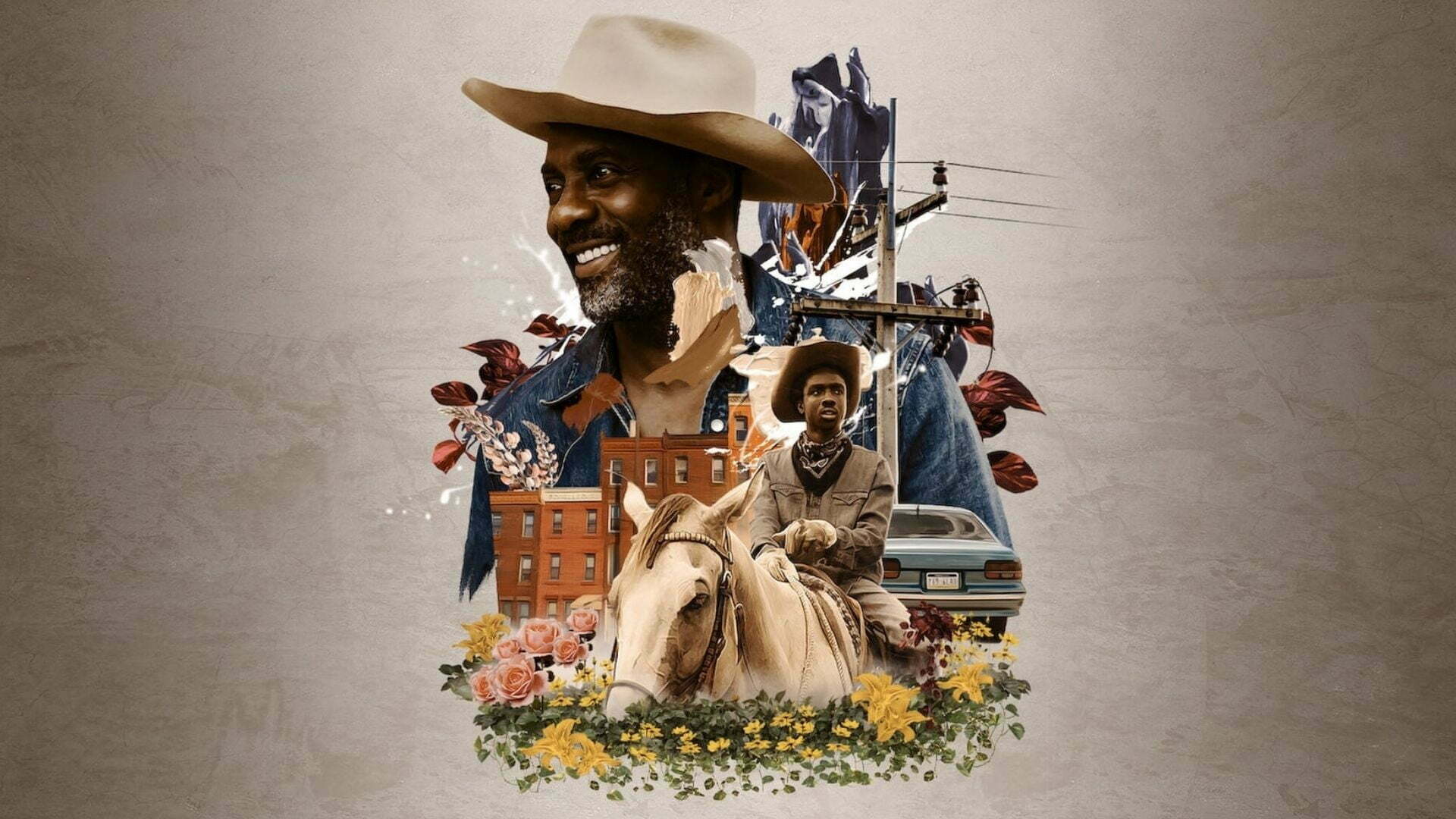
Concrete Cowboy – Turn the Stables
Greet the house horse with cheese and stock up on urine guns. We are fighting gentrification and forgotten histories this week with Concrete Cowboy.
Hosted By
KT & Oti
For Your Reference
Show Notes
Greet the house horse with cheese and stock up on urine guns. We are fighting gentrification and forgotten histories this week with Concrete Cowboy.
Breakdown and Analysis
- Overall it is an enjoyable movie but we both failed to care for Cole. Elements felt included just because, like the love story.
- As the movie progressed, Oti realised the character development wasn’t going to come to fruition which halted the emotional resonance.
- There are some thespians that ooze quality so it hurts us to see them in roles that do not allow for the range. Idris Elba is striking urethras himself.
- KT talks about the importance of needing to emotionally care about the protagonist. In regards to the storytelling style, it was not effective.
- KT wanted to learn more about the cowboys and individually learn more about the characters.
- The Cole in the book was 12 years old and there are some considerations that can be made however the groundwork was not laid out for us to want to grant these graces.
- We eloquently tackle nature vs nurture in whether Cole was a troubled kid or just a dickhead.
- Nothing Cole would have said in the car ride with his mother would have made it better. The mum had enough and it was easy to feel for her character. It was not an easy decision and accept she couldn’t give more than she was giving and her inner conflict was visible.
- It’s not always necessary to see actions of a character but most of the time, actions reflect the motivations of a character. What makes them feel what they feel.
- We both agree that the choice of protagonist hurt the emotional resonance. If the point was to introduce us to the subculture, it could have been done without a whiny teenager.
- There’s so many layers being introduced to the cowboy experience that we would have loved to delve into.
- We will still be who we are even if we are not where we were.
- Leroy was more accepting of the situation and tried to help the Fletcher Street Cowboys but was met with ultimate resistance.
- Smush brought a lot of feelings into this film. A kid that had dreams and hopes of a brighter future.
- When little boy, when? Some moments felt out of place because the work wasn’t done to build to it.
- Hunt for the Wilderpeople is an example of a film that did it better. Not showing all of the protagonist’s backstory but successfully laid the foundation.
- There are a lot of parallels between the changing of an age as well as Black America and White America.
- Layered commentary throughout the film and heavy on literal metaphors. Current mainstream American using and discarded what they see fit.
- Many scenes did not add to the overall storyline so it was hard to continue enjoying it.
- The most compelling emotions in this film did not involve Cole. Paris is able to get back on the horse and because he didn’t seem like a main character and because it happened so early in the film, the opportunity for emotion feels unearned.
- Part of the problem with Smush was that he was more ambitious than smart.
- Give a character a goal they keep mentioning and it gets to a point when the audience realises they will never meet that goal.
- KT draws comparison of Smush to a character in the live action Mulan.
- Having an impressive cast automatically heightens expectations.
- Everyone had emotional moments with Cole that he never grew from.
- It is possible to stay where you brought up and shake off the naivety but it is a conscious decision at that point.
Unrelated but vital points
- Caleb went to the Jaden Smith school of yell acting.
- The Temptations is one of KT’s favourite comfort films.
- Lorraine Toussaint plays good and bad characters extremely well. Super solid.
- Cole was pingu.
- Love and accolades, always, to Jharrel Jerome.
- Oti trusts people more.
Referenced

KT's Picks
Referenced in this episode

Deadwood
"The town of Deadwood, South Dakota in the weeks following the Custer massacre is a lawless sinkhole of crime and corruption. Into this uncivilized outpost ride a disillusioned and bitter ex-lawman, Wild Bill Hickok, and Seth Bullock, a man hoping to find a new start for himself. Both men find themselves quickly on opposite sides of the legal and moral fence from Al Swearengen, saloon owner, hotel operator, and incipient boss of Deadwood. The lives of these three intertwine with many others, the high-minded and the low-lifes who populate Deadwood in 1876."

Oti's Picks
Referenced in this episode

Stranger Things
"In a small town where everyone knows everyone, a peculiar incident starts a chain of events that leads to the disappearance of a child, which begins to tear at the fabric of an otherwise peaceful community. Dark government agencies and seemingly malevolent supernatural forces converge on the town, while a few of the locals begin to understand that there's more going on than meets the eye."
Episode Details
- Duration
- 0:00
- Released
- April 21, 2021
- Category
- Episode
- Hosts


Up Next
We Need to Talk About Kevin – Deliver Us From Eva
February 10, 2026
Ratcatcher – What’s New Pussycat?
February 3, 2026
Marty Supreme, 28 Years Later: The Bone Temple, Night Patrol & My Brother’s Band
January 31, 2026